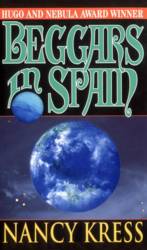





| ||||
Links du jour:
| ||||
Bookshelf:Currently reading:
 Next up:
| ||||
Moving to Project BuilderWell, now it can be told: Around the first of next month, I'll be leaving my current team at Apple, WebObjects, and moving to a new group, Project Builder. It's a move I've mulled over for a while, but a variety of things eventually persuaded me to apply for a position on the team. And now is a good time since we're finishing up a release on my old team. One of the strange things about my career is that I don't have this burning desire to go work on thus-and-such a project. I'm generally pretty happy working on any project that keeps me busy and interests me. As long as this is the case, I have a tendency to stay in one position for a while. I knew that I was motivated to return to being a developer from my sojourn in QA, but beyond that... But I know several of the people I'll be working with on PB and think I'll enjoy working with them. And it's also somewhat alluring to work on a project which is closer to the core of Apple software (the OS), even though PB is really a tool and not part of the OS. Another factor for me is that, truth to tell, I've always worked on projects that are "key technologies" where I've been, but that are in a sense fringe projects at the company: The company's committed to them, but they're not a central part of the company's plans. This has the benefit of giving me a lot of freedom and flexibility in how I organize my work and my time, but it also means I don't really know how well I'll do in a higher-pressure environment. And until I try, I'll never know, will I? So I'm pretty excited about the move, in my low-key way. PB is a relatively new product and there's always plenty to be done on such products. And I'll be programming in Objective-C using the Cocoa application frameworks for Mac OS X. New stuff! I always feel bad leaving groups, though. Then again, I've been with WebObjects for well over two years, all together, which is a pretty long time to stay with a company, never mind a given product, in the Valley these days. As people keep telling me, it's just business!
 Haven't seen Debbi again yet, but we'll see each other this weekend. However, as it's her birthday today, I gave her a call last night to wish her a happy one, and we ended up on the phone for three hours! That's a good sign, right? I pointed her to Monday's journal entry, and she was cool with everything I wrote - except the fact that I'd dated it and Tuesday's entry one day late! (I fixed that.) She's not reading my journal, partly due to time constraints, and partly because she wants to get to know me "the old-fashioned way". Which is, of course, the way I'm getting to know her! (Except for the fact that "old-fashioned" for us includes copious exchanges of e-mail.) Fun, fun!
 This week I read a slim volume with two essays by Michael Swanwick entitled The Postmodern Archipelago. The first essay, "A User's Guide to the Postmoderns", dates from 1986 and chronicles the early literary conflict between the Cyberpunks and the Humanists. You're probably familiar with the Cyberpunk authors (Gibson, Sterling, and the like), but the term "Humanist" has been largely forgotten as a label used to group authors like Kim Stanley Robinson and Connie Willis. Apparently the essay was quite controversial at the time, but it seems clunky and dated now (and isn't helped by Swanwick's overly-florid prose style, a style the overuse of which severely impeded my enjoyment of a few of his novels). Of course, in the long run "Humanist" SF has continued to flourish, while Cyberpunk fractured into assorted smaller movements, its core attributes (high-tech wizardry made commonplace in a cutting-edge environment) being readily integrated into the hard SF of folks like Iain Banks and Ken MacLeod. The second essay, "In the Tradition...", is a look at "hard fantasy" from the vantage point of 1994. It's primarily a survey of original, cutting-edge fantasy from the 80s and early 90s, focusing on individual books by authors like John Crowley, Terry Bisson, Ellen Kushner, and Robert Holdstock. It's a useful reference for folks interested in modern fantasy, but isn't a strong critical work. I'd say this collection is for hardcore SF&F fans only.
|
||